years
CORE Genesis
Since our start 10 years ago, we collected 296M scientific outputs along with 38M hosted documents bringing open science to everyone. None of this was achieved in a moment, but we have worked hard over the last 10 years. We are happy to share the story of us.
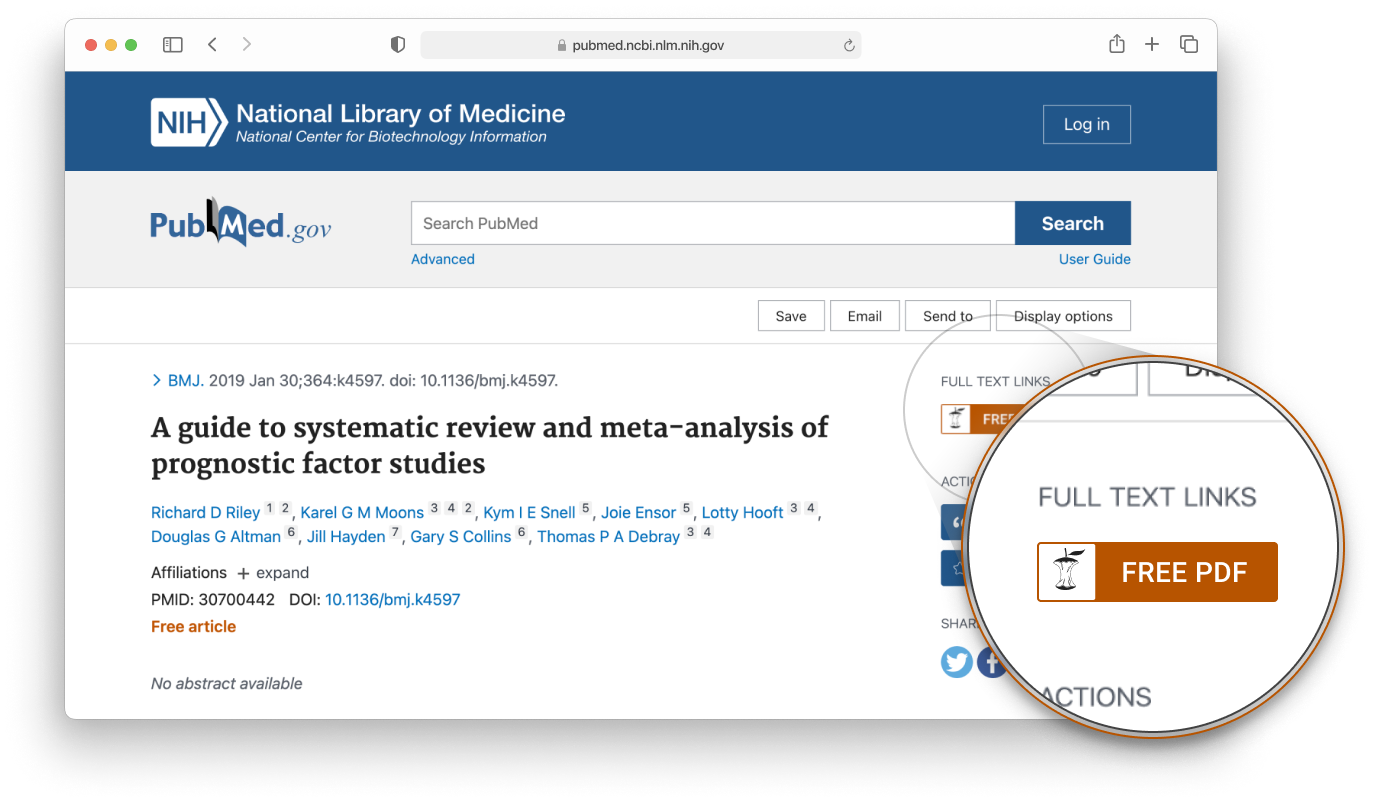
CORE participates in PMC LinkOut
This development now enables PubMed users to access full text links to articles hosted in CORE via its LinkOut service, providing researchers with a direct route to the research. The linking of CORE papers directly from PubMed resources and other related databases further increases the discoverability of content aggregated by CORE, providing a valuable service to our repositories.

CORE reaches 30 million visits per month
As of November 1, 2020, CORE is listed among the top 2,000 websites by user engagement, calculated from a combination of daily visitors and page views on a website over the last 90 days. In the beginning of December, CORE achieved 1,528 positions on the rank.
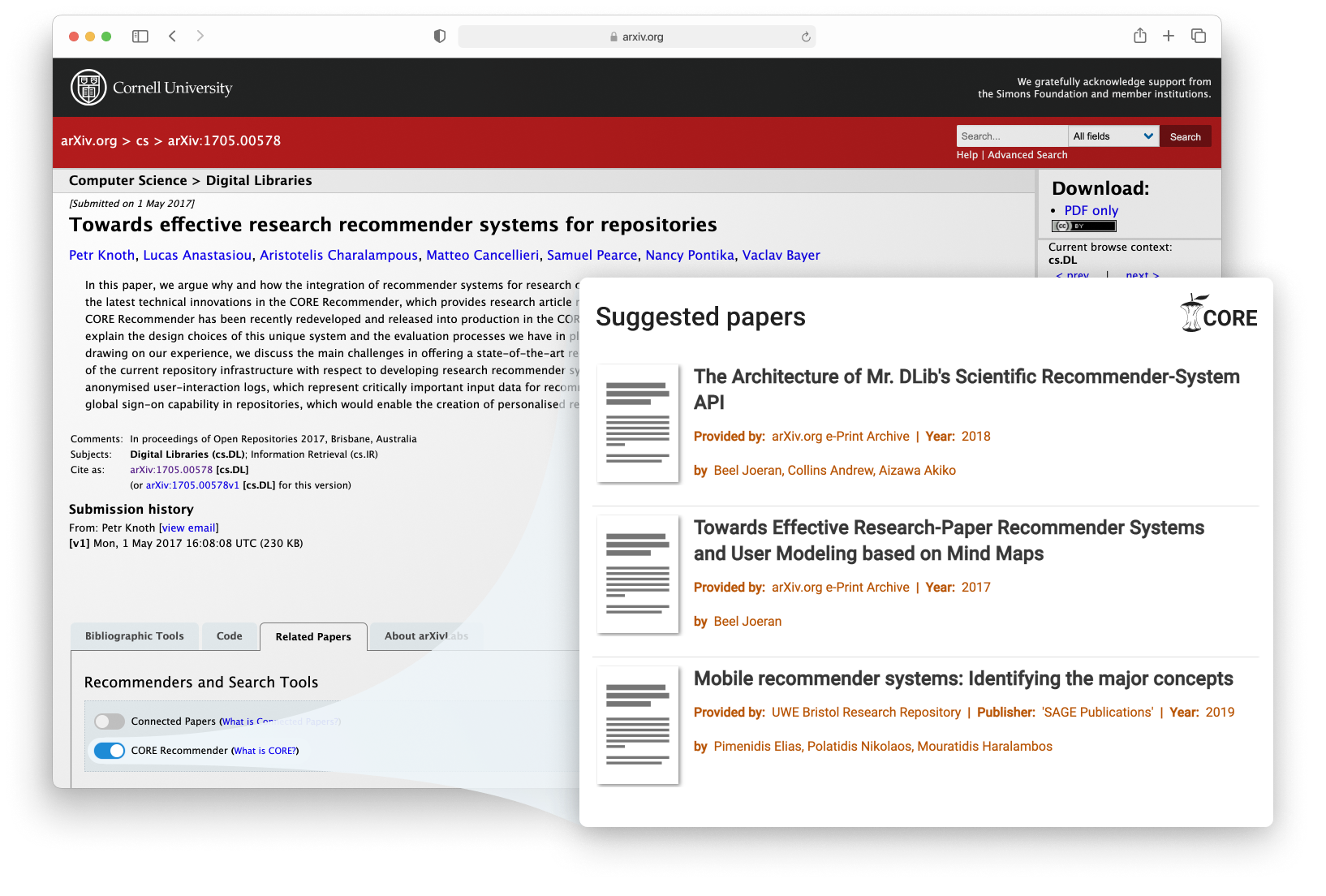
CORE Recommender now supports article discovery on arXiv
To generate a list of recommended works, the tool utilizes an algorithm based on the article’s full text and metadata, including title, authors, and abstract. The suggestions come both from arXiv and other resources in the CORE collection, and as many as five articles with freely accessible full texts might be recommended
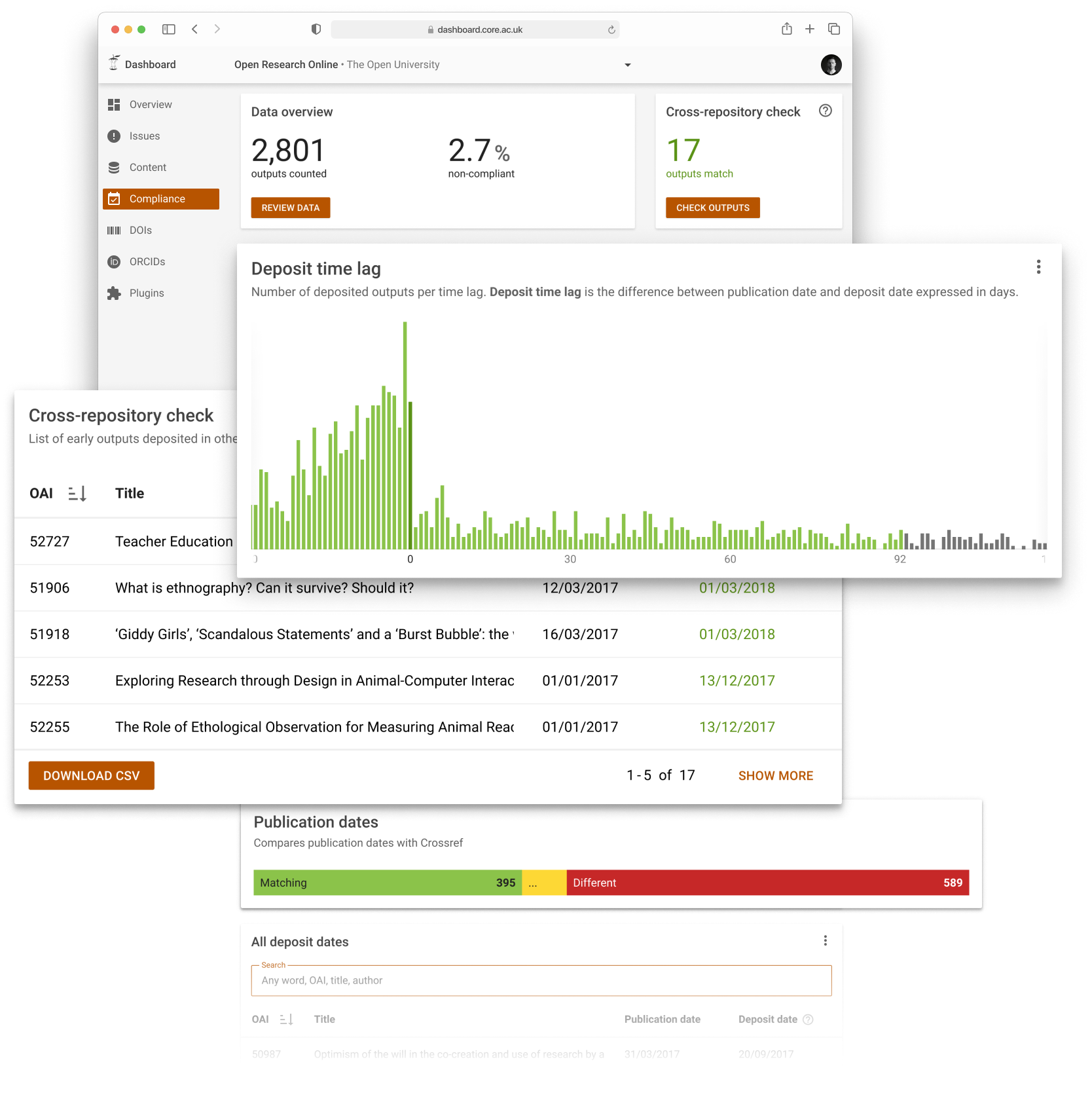
CORE launches Repository Edition
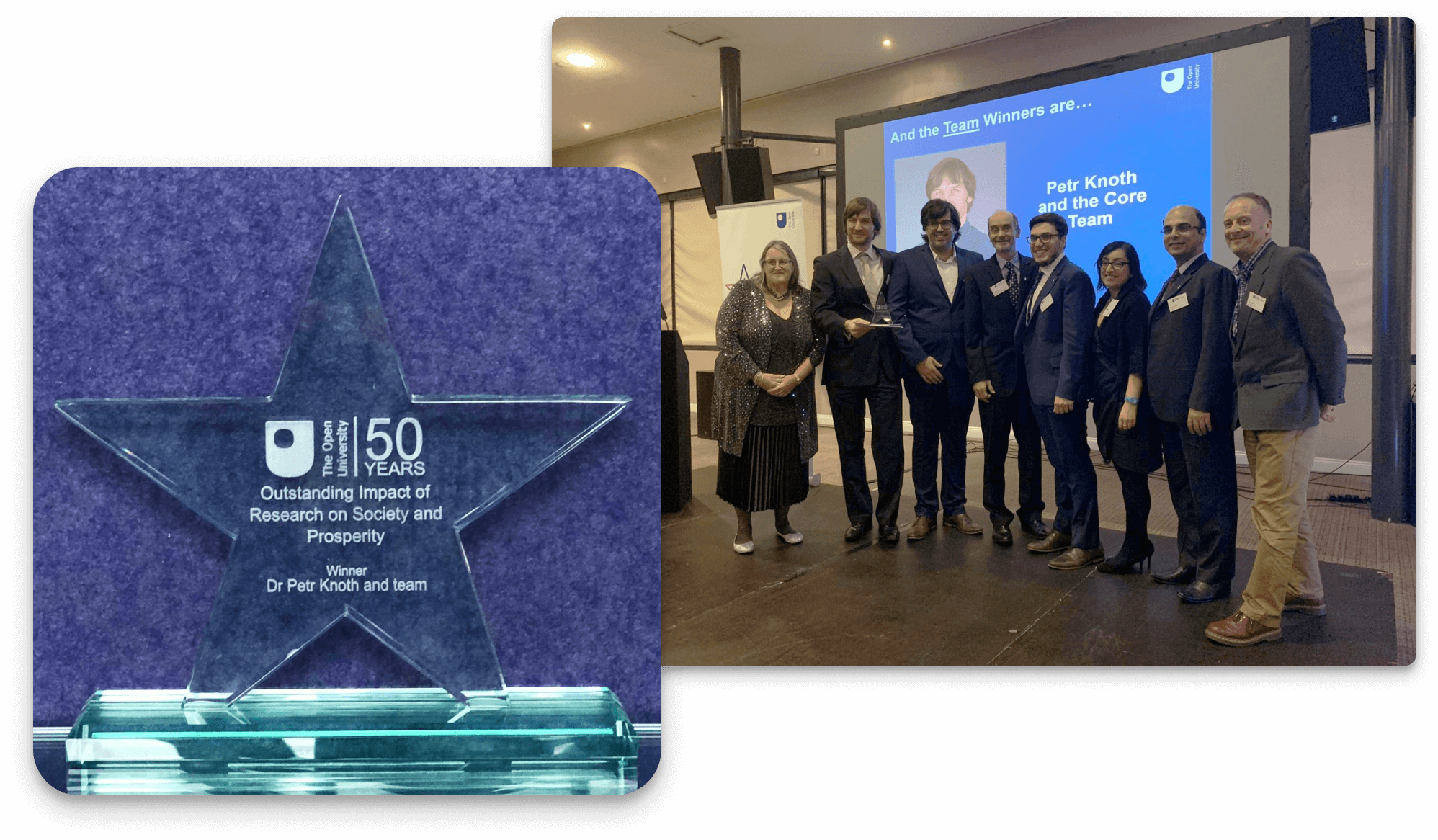
Award for Outstanding Impact of Research on Society and Prosperity
CORE is continuing to grow both its content, user-base and range of services. With now close to 14 million full texts and 135 million metadata items from about 10,000 providers, CORE aims to facilitate free, unrestricted access to research for all.

Hello CORE Discovery!
CORE announced to be used in REF 2021
Research England announces to use CORE for the REF 2021 Open Access audit. This is motivated by our research study Do Authors Deposit on Time? Tracking Open Access Policy Compliance.
Fast growing user base
CORE reaches 10 million monthly active users
Becoming world’s largest open access aggregator

75 million metadata and 6 million full texts
CORE reaches the milestone of 75 million metadata records and 6 million full text research articles harvested from open access journals and repositories.
Aggregator of open access journals and preprints
Research grants, including national and European Commission funded Horizon 2020, enable CORE to expand its functionality to harvest open access journals, including hybrid journals, and preprint repositories. Another series of multi-year research grants, including national and European Commision funded H2020, enable CORE to expand its ability to harvesting content from open access journals (including hybrid) and preprint systems.
CORE Repository Dashboard is launched
The Repository Dashboard is launched. It initially provides an online interface for repositories and content providers to manage harvesting. However, the functionality is regularly updated.

CORE becomes an open access service
A series of small grants and engagements eventually leads to the CORE team landing a multiyear national open access aggregator service contract with Jisc. CORE joins the Jisc Open Access Services portfolio, but the team delivering CORE stays at the Open University, in a bilateral agreement of Jisc with the Open University in which both institutions commit to supporting CORE.
From a technical perspective, this enables CORE to develop its services along the Service Oriented Architecture (SOA) paradigm and put in place the required hardware for the service provision.
The UK national aggregator
Jisc recognises CORE as the official UK’s national Open Access aggregator, after CORE wins a Jisc-commissioned tender.

Mobile application launched
First release of a mobile application for Android.

Another grant brings a 2 year stability
A new research grant called DiggiCORE provides a necessary degree of stability for the development of CORE and allows expanding and improving the technology.
This is the time when CORE manages to scale out its functionality to harvest, process and analyse not just metadata of open access research papers but their full texts too. This processing of full texts becomes a defining feature of CORE, connecting full text research papers from across repositories globally. It is a clear response to the need of going beyond poor quality metadata only silos on which it is hardly possible to develop engaging services.
From a national aggregator to a worldwide aggregator
Petr Knoth secures a new grant running for 9 months with the objective of developing a UK nationwide aggregation service for research publications scattered across institutional repositories. The potential of the system is demonstrated through the development of 5 services on top of the aggregation system: CORE Portal (with search), CORE Mobile, CORE Recommender and CORE API.
The project again over-delivers, resulting not just in the aggregation of the vast majority of the UK repositories but quickly expanding, both technically and strategically, to aggregated research outputs from institutional repositories aggregated globally.
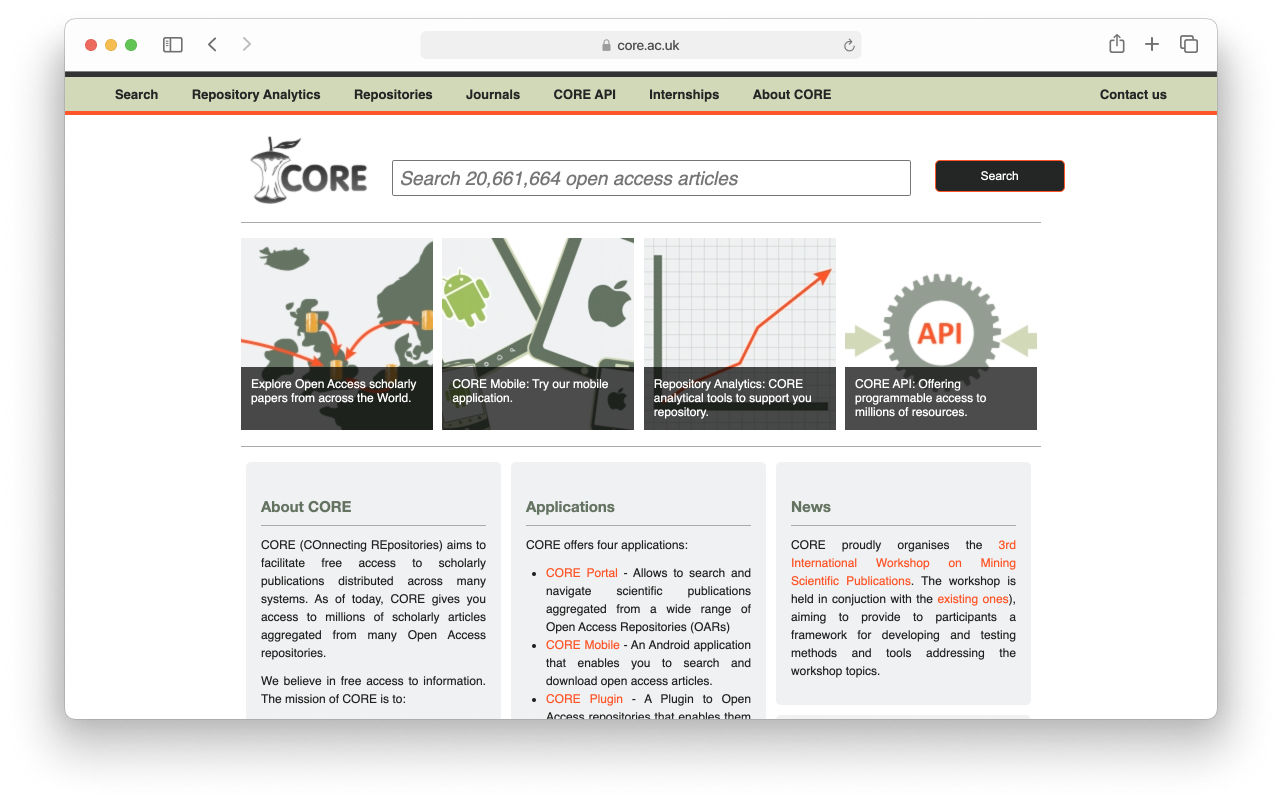
CORE project started
The first grant for CORE is awarded by Jisc in January and the project commences on 1st February 2011, initiating a long-term collaboration of the Open University and Jisc (which is not yet known at this time). CORE embarks on a mission to facilitate free, unrestricted access to research for all.
CORE’s initial goal is to connect 20 repositories and provide a recommendation system for their papers.
One of the project’s achievements is the integration of the CORE Plugin (later called CORE Recommender) into the Open University’s repository, Open Research Online. This is the first adopter with hundreds more to follow in the future.
The project over-delivers, developing an aggregation engine for over 60 repositories, a recommender system, linked open data module and search and web UI. The funder (Jisc) is impressed, paving the way for new opportunities.
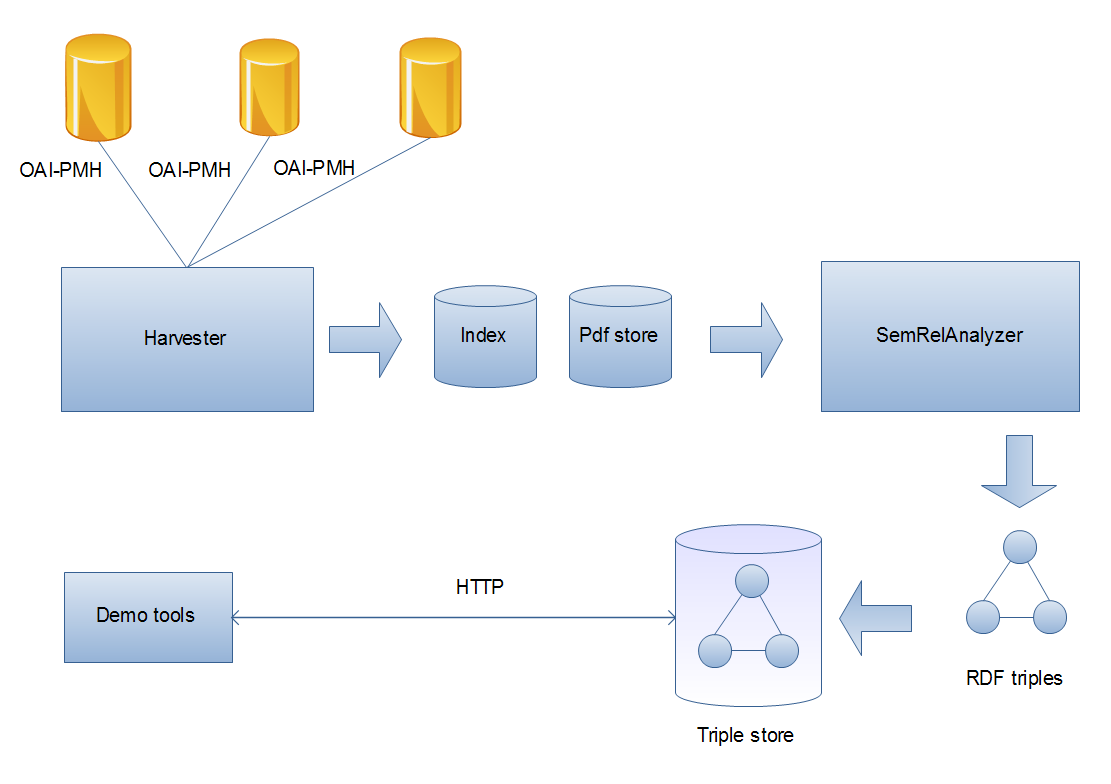
Initial grant application submitted
Petr Knoth writes an application for the first grant for his idea. He is asking for an initial seed of £40k which will fund his project for 6 months. The CORE (COnnecting REpositories) brand is born.
Initial idea developed
Petr Knoth comes up with the idea of aggregating research papers as part of his doctoral work at the Knowledge media institute, The Open University. He recognises that research papers are scattered across many systems limiting their reuse potential. He is motivated by the opportunity to connect repositories by aggregating open access papers so that research papers can be text-mined, enabling the development of innovative technologies for information access. He becomes a strong supporter of the open access movement and open access repositories, wanting to see democratisation of knowledge generated using tax-payers’ money.